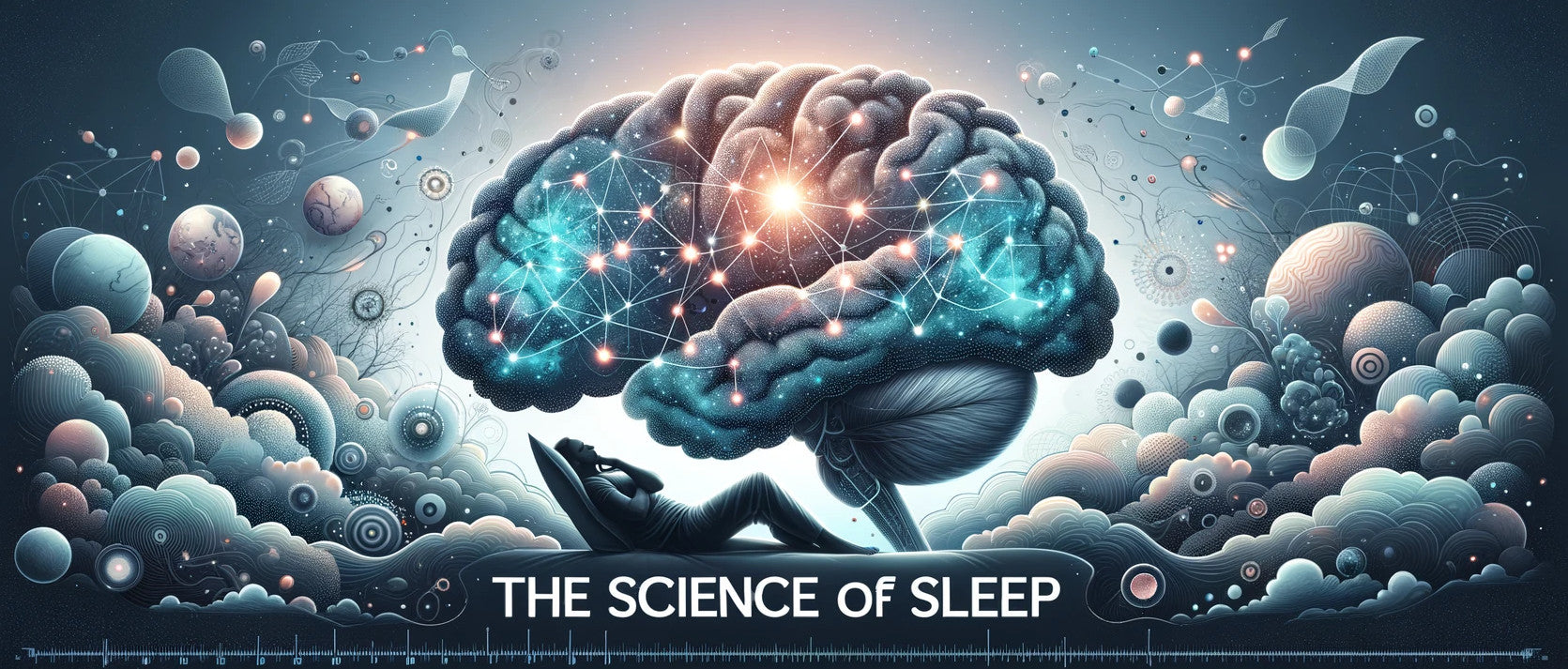
How important is sleep?
-

Sleep is a fundamental pillar of health, playing a crucial role in maintaining both physical and mental well-being. Adequate sleep is essential for the body to repair and rejuvenate itself, supporting processes like muscle growth, tissue repair, protein synthesis, and hormone regulation. It also enhances cognitive functions, including memory, problem-solving, and decision-making.
-

From an anti-aging perspective, sleep is a powerful, natural therapy. During deep sleep, the body releases growth hormones that aid in cell repair and regeneration. This helps to combat the effects of aging by reducing the appearance of fine lines and wrinkles, improving skin elasticity, and promoting a youthful complexion. Additionally, sufficient sleep helps to balance stress hormones, reduce inflammation, and support a healthy immune system, all of which are vital for longevity and vitality.
-

Incorporating healthy sleep habits into your daily routine can significantly enhance your overall health and slow down the aging process. Prioritize quality sleep as a cornerstone of your wellness strategy to unlock its myriad benefits for a healthier, more youthful life.


(Non-Rapid Eye Movement)
NREM Sleep
NREM sleep is one of the two basic types of sleep, and is subdivided into three stages: N1, N2, and N3.
NREM sleep is crucial for physical recovery and health, memory consolidation, and various other functions of the body and brain.

(Rapid Eye Movement)
REM Sleep
REM sleep typically begins about 90 minutes after falling asleep. It is distinguished by several unique characteristics.
This phase is crucial for cognitive functions such as memory consolidation, learning, and emotional regulation. Each cycle of REM sleep can last from a few minutes to over an hour as the night progresses.
Deep sleep, also known as slow-wave sleep (part of the NREM sleep cycle), is critical for numerous aspects of health and well-being. Here are some of the key health benefits of deep sleep:
The Benefits of Deep Sleep
Physical Restoration
During deep sleep, the body repairs tissues, muscles, and bones. It is a crucial time for the growth and regeneration of cells, aided by the release of growth hormone.
Immune System Strengthening
Deep sleep helps bolster the immune system by enhancing its ability to respond to antigens. This makes the body more capable of fighting off illnesses and infections.
Energy Conservation
Deep sleep reduces your overall metabolic rate, giving your body a chance to conserve and replenish energy for the next day.
Brain Detoxification
Recent studies suggest that deep sleep plays a role in clearing out waste products from brain cells. This process, involving the glymphatic system, helps prevent the build-up of toxins that might be linked to neurodegenerative diseases.
Memory Consolidation and Learning
Deep sleep is important for memory consolidation, the process by which short-term memories are solidified into long-term memories. This stage of sleep is crucial for learning new information and for the brain to recover and rebuild.
Emotional and Mental Health
Getting enough deep sleep can help regulate emotions and support mental health. It helps reduce stress and anxiety levels, and inadequate deep sleep is linked to increased risk of developing mood disorders.
Supports Metabolic Health
Deep sleep influences various metabolic processes, including glucose metabolism and hormonal balance. Proper deep sleep can help maintain healthy insulin sensitivity and appetite regulation, contributing to overall metabolic health.

The Glymphatic System

Function and Importance
- Waste Removal: The glymphatic system acts as a waste clearance mechanism, removing metabolic waste products and toxins from the brain, including beta-amyloid and tau proteins associated with Alzheimer's disease.
- Cerebrospinal Fluid (CSF) Flow: It facilitates the flow of cerebrospinal fluid (CSF) through brain tissue, effectively washing away waste.
- Sleep-Dependent Activity: The glymphatic system is most active during sleep, especially during deep NREM sleep, highlighting the importance of sleep for brain health and function.

Mechanism
- CSF Influx: CSF enters the brain via channels that surround blood vessels (perivascular spaces), driven by the pulsatile force of arterial blood flow.
- Interstitium Exchange: CSF moves into the interstitial space, mixing with interstitial fluid to flush out waste products from brain cells.
- Waste Efflux: The waste-laden fluid then exits the brain along venous pathways, ultimately being absorbed into the body's lymphatic system for further filtration and excretion.

Benefits and Implications
- Neuroprotection: Efficient glymphatic function is believed to help in the clearance of toxic proteins, which may play a role in supporting brain health and could potentially influence the risk of neurodegenerative diseases.
- Cognitive Health: By clearing waste, the glymphatic system supports cognitive functions, including memory and learning.
- Aging and Disease: Impaired glymphatic function has been linked to aging and neurological disorders, making it a target for therapeutic strategies aimed at enhancing brain health.
Improving Sleep Quality
Take the time to learn about the Best practices and habits for better sleep, sleep disorders and general advice on when to seek professional help
(Consultation with healthcare providers for diagnoses and treatments is always advised)
Adopting good sleep habits can significantly enhance the quality of your sleep. Here are some best practices and habits that can help
Best Practices and Habits for Better Sleep
Consistent Sleep Schedule
Going to bed and waking up at the same time every day, even on weekends, helps regulate your body's internal clock and can improve the quality of your sleep.
Create a Relaxing Bedtime Routine
Engage in calming activities before bed, such as reading, taking a warm bath, or meditation. This can help signal to your body that it’s time to wind down.
Optimize Your Sleep Environment
Ensure your bedroom is conducive to sleep—cool, quiet, and dark. Investing in a comfortable mattress and pillows can also make a big difference.
Limit Exposure to Light
Exposure to light in the evenings can disrupt your body’s natural circadian rhythms. Reduce blue light exposure from screens (like smartphones and computers) at least one hour before bed and consider using blackout curtains or a sleep mask.
Watch What and When You Eat
Avoid large meals, caffeine, and alcohol before bedtime. Try to make dinner time earlier in the evening, and avoid heavy, rich foods within two hours of bed.
Exercise Regularly
Regular physical activity can help you fall asleep faster and enjoy deeper sleep—but don't exercise too close to bedtime.
Manage Stress and Worries
Try to resolve your worries or concerns before bedtime. Jotting down what’s on your mind can be a good way to put it out of your mind temporarily.
Limit Naps
While naps can help make up for lost sleep, if you have trouble falling asleep or staying asleep at night, napping can make things worse. Limit naps to 20 minutes in the early afternoon.
Evaluate Your Sleep Health
If you continue to have problems sleeping, you might have a sleep disorder. Consulting a healthcare provider can help you determine your best steps.

Common Sleep Disorders
Insomnia: Difficulty falling asleep or staying asleep. It can be acute (short-term) or chronic (ongoing).
Sleep Apnea: Characterized by pauses in breathing during sleep, often resulting in the person waking up to resume breathing. The most common type is obstructive sleep apnea.
Restless Legs Syndrome (RLS): An urge to move the legs, usually due to uncomfortable sensations. It typically happens in the evening or nighttime hours when you're sitting or lying down.
Narcolepsy: A chronic sleep disorder characterized by overwhelming daytime drowsiness and sudden attacks of sleep.
Circadian Rhythm Sleep Disorders: These disorders involve persistent problems with your sleep-wake cycles, making it difficult to sleep and wake at the right times.
Parasomnias: This group includes abnormal movements, behaviors, emotions, perceptions, and dreams that occur while falling asleep, sleeping, between sleep stages, or during arousal from sleep. Common examples are sleepwalking and night terrors.

When to Seek Professional Help
Persistent Issues: If sleep problems persist for longer than a few weeks and significantly affect your daily life, it’s advisable to seek professional help.
Daytime Impairment: If you feel excessively sleepy during the day, find it difficult to concentrate, or often feel unrefreshed after sleeping, these might be signs of a sleep disorder.
Physical Symptoms: Loud snoring, long pauses in breathing during sleep, or chronic restlessness might be signs of a serious sleep disorder.
Impact on Mental Health: Sleep issues can lead to or exacerbate mental health problems like depression or anxiety. If you notice mood changes or a decline in your mental health, professional guidance is recommended.
Non-Responsive to Basic Interventions: If basic interventions like improving sleep hygiene, establishing a regular sleep schedule, and reducing caffeine intake do not improve your sleep, it might be time to consult a specialist.
Studies
View all-

The effect of earthing mat on stress-induced an...
Park et al, 2022 [pre-clinical study, Sprague–Dawley rats, male, 6–7 weeks old] aimed to investigate whether grounding in the rats could change stress-related anxiety and depressive behaviors and the production...
The effect of earthing mat on stress-induced an...
Park et al, 2022 [pre-clinical study, Sprague–Dawley rats, male, 6–7 weeks old] aimed to investigate whether grounding in the rats could change stress-related anxiety and depressive behaviors and the production...
-

The impact of grounding in running shoes on ind...
Muniz-Pardos et al, 2022 [double-blind, randomized, crossover design, n= 10, male, mean age of 27.7] aimed to examine the physiological and perceptual responses of athletes subjected to grounding shoes during...
The impact of grounding in running shoes on ind...
Muniz-Pardos et al, 2022 [double-blind, randomized, crossover design, n= 10, male, mean age of 27.7] aimed to examine the physiological and perceptual responses of athletes subjected to grounding shoes during...
-

The effects of grounding (earthing) on bodywork...
Chevalier et al, 2019 [double-blind Randomized Controlled Trial, n= 16, male and female, from 30 to 55 years of age], aimed to determine the effects of grounding on massage therapists’...
The effects of grounding (earthing) on bodywork...
Chevalier et al, 2019 [double-blind Randomized Controlled Trial, n= 16, male and female, from 30 to 55 years of age], aimed to determine the effects of grounding on massage therapists’...





